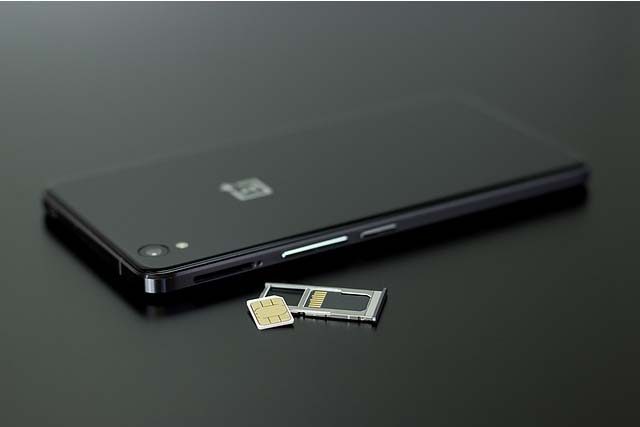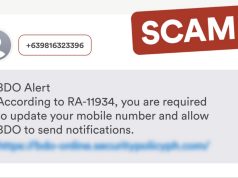Privacy concerns were raised online over some provisions of the Senate bill that requires legal identities and phone numbers to be registered when creating new accounts.
The bill called the Subscriber Identity Module (SIM) Card Registration Act is now ratified and up for President Rodrigo Duterte‘s signature.
READ: Senate passes SIM card registration bill
Under this proposed legislation, public telecommunication entities (PTEs) will compel users to disclose their personal details as pre-requisites for the sale and activation of their subscriptions or accounts.
Deputy Speaker Wes Gatchalian, a principal author of the bill, said that this bill will help curb terrorism, text scams, bank fraud, online defamation and other related crimes.
“Indeed, we are grateful for the avowed support of the present leadership in fulfilling its legislative mandate to ratify this landmark measure, knowing the timely and vital role of information and modern communications technology at this time,” Gatchalian said.
Officials from telecommunication firms Smart Communications and Globe Telecom also welcomed this proposal.
They expressed their readiness to implement the provisions of the bill once it is passed into law.
‘Questionable provisions’
In a statement on February 2, Democracy.Net PH, a rights group dedicated to promoting information and communications technology, expressed concern on Section 10 of the bill.
This provision gives authority to PTEs to issue subpoenas to users.
“It appears that the mandatory SIM registration information provides that disclosure of registration information does not require a court order for disclosure to be done,” the organization said.
Democracy.net PH also pointed out that under this law, PTEs will join the existing government bodies and officials in the country authorized to issue subpoenas to civilians.
“In the Philippines, aside from the courts there are a large number of bodies authorized to issue subpoenas, such as the Senate, the House of Representatives, the National Bureau of Investigation, the Commission on Human Rights, offices of city prosecutors, among others,” it said.
An excerpt of the provision was provided on its Facebook post.
“The PTEs and social media providers, upon order of a competent authority, duly authorized under existing laws to issue subpoena, shall be required to provide information obtained in the registration process pursuant to an investigation of a complainant’s verified sworn complaint,” the excerpt reads.
Data Ethics Philippines, a group that promotes the ethical use of data and technology in the country, shared a screenshot of Facebook post from Pierre Tito Galla, a member of Democracy.Net PH.
In the image, Galla expressed alarm on Section 4 of the bill where several online activities are considered “crimes” under the bill.
These include the following:
- anonymous online defamation
- trolling
- hate speech
- spread of digital disinformation or fake news as defined under pertinent laws
Look: Engr. Galla of digital rights group @PHNetDems calls out the potential issues of upcoming Senate Bill 2395/House Bill 5793 or the SIM Card Registration Act. pic.twitter.com/tSPOgpJOs1
— Data Ethics PH (@EthicsPh) February 3, 2022
Dominic Ligot, founder of Data Ethics PH and board member of the Philippine Center of Investigative Journalism, quote-retweeted this.
Ligot quipped that online word war would soon be illegal.
“Anonymous online defamation? Implication: Barda is illegal under the SIM Card Registration Act,” he said.
Reddit users were also similarly concerned over how the government will implement this given the complex nature of social media platforms.
“Overkill (at least on the social media side) is all I can say about this. That, or they REALLY want to know the true identities of people who criticize the government,” one user said.
“You don’t need to have a SIM card to be jailed under this law. All you need to do is have a social media account. Intent of the law is quite clear,” another user commented.
One Reddit user pointed out that there are still many gaps in the country’s information technology infrastructure that the government has yet to address and resolve.
“Hindi nga natin ma-prioritize ang magandang IT infrastructure in the first place, tapos sandamakmak na bureaucracy sa mga government services na kaya naman simplehan at solusyunan in the first place, utilizing IT,” the user said.










